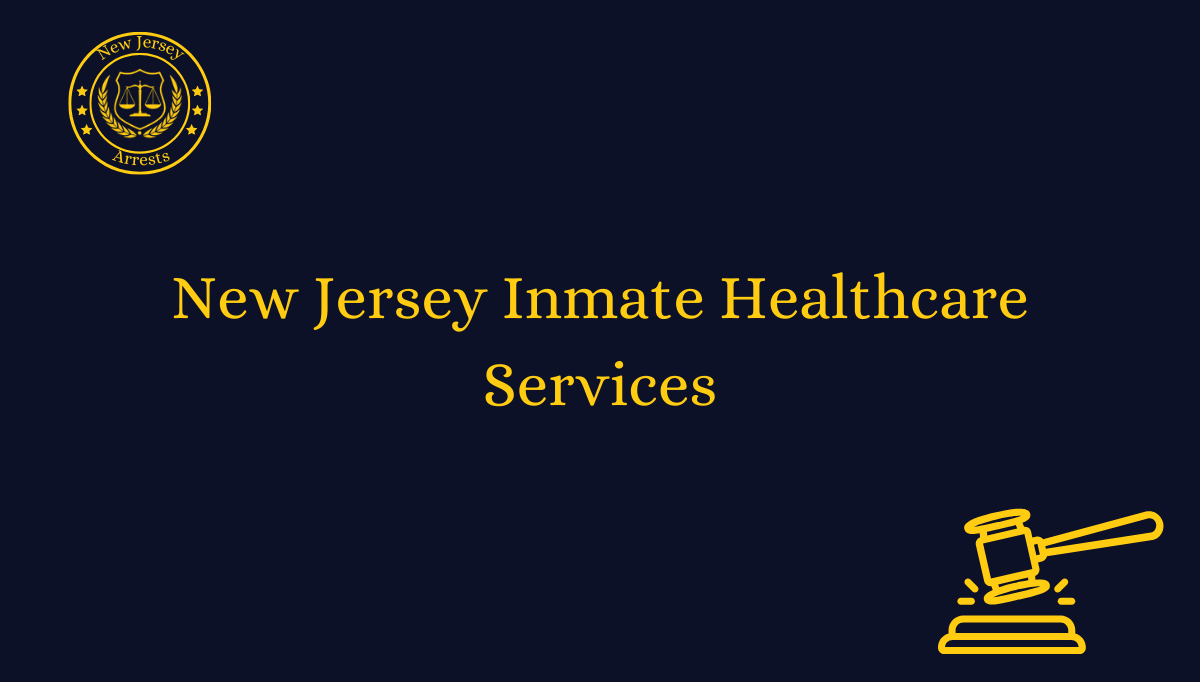New Jersey Inmate Healthcare Services
In the realm of corrections, ensuring the health and well-being of inmates is a critical responsibility. In New Jersey, the provision of healthcare services to incarcerated individuals is governed by a complex framework that balances legal requirements, resource constraints, and public safety concerns. This article explores the landscape of inmate healthcare services in New Jersey, shedding light on the challenges, legal framework, service providers, preventive care programs, mental health services, emergency protocols, innovative approaches, community reentry programs, funding dynamics, public perception, and future trends.
In New Jersey, like in many other states, the delivery of healthcare services within correctional facilities is a multifaceted endeavour that involves addressing various medical, mental health, and substance abuse needs of inmates. Despite the inherent challenges, the state is committed to upholding the constitutional rights of incarcerated individuals to receive adequate healthcare.
Challenges in Inmate Healthcare
One of the primary challenges in providing healthcare to inmates is the limited access to services. Incarcerated individuals often face barriers in accessing timely medical attention, leading to exacerbated health conditions. Moreover, mental health issues and substance abuse further compound the healthcare needs within correctional facilities.
Legal Framework
The provision of healthcare to inmates in New Jersey is guided by a robust legal framework that outlines their rights to medical treatment. Federal and state regulations mandate correctional facilities to provide essential healthcare services, ensuring that inmates receive medical attention consistent with community standards.
Healthcare Providers
Correctional healthcare providers play a pivotal role in delivering medical services to inmates. These professionals, including physicians, nurses, and mental health specialists, are tasked with addressing the diverse healthcare needs of incarcerated individuals. Collaboration with external healthcare organizations further enhances the scope and quality of services available to inmates.
Preventive Care Programs
In an effort to promote wellness and disease prevention, correctional facilities in New Jersey implement various preventive care programs. These initiatives encompass vaccinations, health screenings, and disease management protocols, aiming to mitigate the spread of infectious diseases and manage chronic conditions among inmates.
Mental Health Services
The provision of mental health services is a crucial component of inmate healthcare in New Jersey. Counseling, therapy, and substance abuse treatment programs are offered to address the psychological well-being of incarcerated individuals, recognizing the prevalence of mental health disorders within correctional settings.
Medical Emergencies
In the event of medical emergencies, correctional facilities in New Jersey adhere to established response protocols to ensure timely intervention. From on-site medical personnel to emergency medical transportation services, measures are in place to address acute healthcare needs and safeguard the health of inmates.
Telemedicine
The integration of telemedicine technologies has emerged as a promising solution to enhance inmate healthcare services in New Jersey. Through remote consultations and telehealth platforms, incarcerated individuals can access medical expertise and receive specialized care without the need for physical transport to external healthcare facilities.
Innovations in Inmate Healthcare
Advancements in technology have paved the way for innovative approaches to inmate healthcare. From electronic health records to data-driven analytics, correctional facilities leverage modern tools to improve healthcare delivery, enhance patient outcomes, and streamline administrative processes.
Community Reentry Programs
Recognizing the importance of continuity of care post-release, New Jersey has implemented community reentry programs to support formerly incarcerated individuals in their transition back to society. These programs offer access to healthcare services, social support, and vocational resources to facilitate successful reintegration.
Quality Assurance Measures
To uphold the standards of inmate healthcare, correctional facilities in New Jersey implement robust quality assurance measures. Monitoring and evaluation mechanisms are employed to assess the delivery of services, ensure compliance with healthcare standards, and identify areas for improvement.
Cost and Funding
The provision of healthcare to inmates entails significant financial implications for the state. Budget allocation for correctional healthcare services, coupled with public-private partnerships, sustains the operation of healthcare programs within correctional facilities and supports the delivery of quality care to inmates.
Public Perception and Advocacy
Despite efforts to improve inmate healthcare, challenges persist in public perception and advocacy. The stigma surrounding incarceration often influences public attitudes toward inmate healthcare, highlighting the need for continued advocacy efforts to promote awareness, empathy, and support for incarcerated individuals’ health needs.
Future Trends
Looking ahead, the landscape of inmate healthcare in New Jersey is poised to undergo further transformation. Evolving healthcare practices, policy reforms, and technological innovations are expected to shape the future of inmate healthcare delivery, with an emphasis on improving access, quality, and outcomes.
FAQS
Explore our extensive Frequently Asked Questions (FAQ) section to find answers to common queries about Arrests NJ.
What healthcare services are provided to inmates in New Jersey?
In New Jersey, inmates are provided with comprehensive healthcare services that include medical, dental, and mental health care. These services are designed to ensure the well-being and safety of inmates while they are incarcerated.
How are medical emergencies handled within the New Jersey prison system?
In case of a medical emergency, immediate medical attention is provided to inmates. The prison staff is trained to handle emergencies and there are designated medical facilities within the prison system to ensure prompt and effective care.
Are inmates required to pay for healthcare services in New Jersey?
No, inmates are not required to pay for healthcare services in New Jersey. The cost of healthcare services is covered by the state’s Department of Corrections to ensure that inmates receive necessary medical attention without financial burden.
What mental health services are available to inmates in New Jersey?
Inmates in New Jersey have access to a range of mental health services including counselling, therapy, and psychiatric care. These services are provided by qualified professionals who are trained to address the unique mental health needs of incarcerated individuals.
How is the quality of healthcare services monitored in New Jersey prisons?
The quality of healthcare services in New Jersey prisons is closely monitored and regulated. The Department of Corrections has established standards and protocols to ensure that inmates receive high-quality care. Regular inspections and audits are conducted to assess the quality of services provided.
Are there any specialized healthcare programs for inmates in New Jersey?
Yes, New Jersey offers specialized healthcare programs for inmates with specific needs such as substance abuse treatment, HIV/AIDS care, and chronic disease management. These programs are tailored to address the unique healthcare challenges faced by incarcerated individuals.







